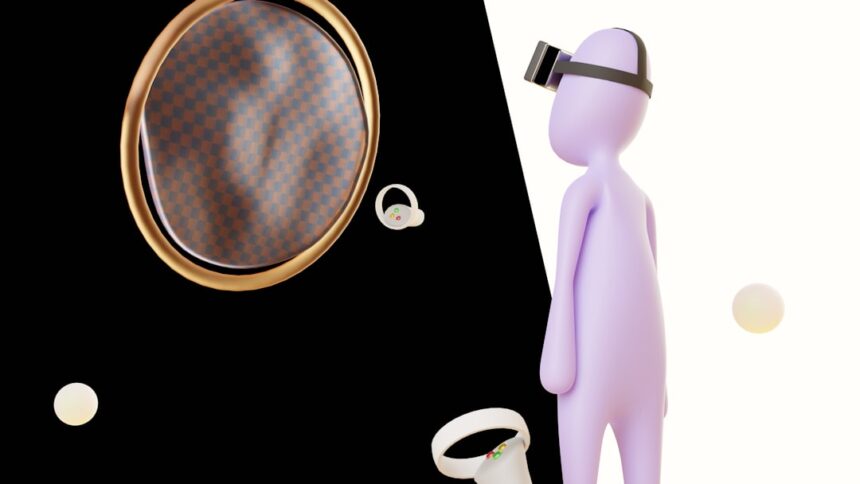Depersonalization and derealization are complex psychological phenomena that can leave you feeling detached from yourself or your surroundings. When you experience depersonalization, you may feel as though you are an observer of your own thoughts, feelings, or body, almost as if you are watching yourself from a distance. This sensation can be disorienting and unsettling, leading to a sense of unreality about your own existence.
On the other hand, derealization involves a feeling that the world around you is not real or is distorted in some way. You might perceive your environment as foggy, dreamlike, or lacking in depth, which can create a profound sense of confusion and anxiety. These experiences can occur in various contexts, often triggered by stress, trauma, or substance use.
Understanding these phenomena is crucial for recognizing when they occur and how they affect your mental state. While they can be temporary and situational for some, for others, they may develop into more chronic conditions that require attention and care. The interplay between your mental health and these dissociative experiences is intricate, making it essential to explore the underlying causes and potential triggers.
Key Takeaways
- Depersonalization and derealization are dissociative experiences that can make a person feel detached from themselves and their surroundings.
- Weed can trigger depersonalization and derealization in some individuals, especially when consumed in high doses or in a vulnerable mental state.
- Symptoms of weed-induced depersonalization and derealization may include feeling like you’re watching yourself from outside your body, or feeling like the world around you is unreal or distorted.
- The duration of weed-induced depersonalization and derealization can vary, but it typically resolves within days to weeks after the last use of weed.
- Coping strategies for weed-induced depersonalization and derealization may include seeking professional help, practicing mindfulness and grounding techniques, and making lifestyle changes to support mental well-being.
The Relationship Between Weed and Depersonalization/Derealization
The relationship between cannabis use and experiences of depersonalization and derealization is a topic of growing interest among researchers and mental health professionals. Many individuals report that using marijuana can lead to feelings of detachment or altered perceptions of reality. This connection may stem from the psychoactive properties of THC, the primary compound in cannabis that affects the brain’s endocannabinoid system.
When you consume weed, it can alter your cognitive processes, leading to heightened sensory experiences or, conversely, feelings of disconnection from reality. For some users, these effects can be enjoyable and contribute to a sense of relaxation or euphoria. However, for others, especially those predisposed to anxiety or other mental health issues, cannabis can trigger uncomfortable sensations of depersonalization or derealization.
Understanding this relationship is vital for anyone considering using cannabis, as it highlights the importance of being aware of how it may affect your mental state. If you have a history of anxiety or dissociative experiences, it may be wise to approach cannabis use with caution.
Symptoms of Weed-Induced Depersonalization and Derealization

When you experience weed-induced depersonalization or derealization, the symptoms can manifest in various ways. You might find yourself feeling disconnected from your body, as if you are watching yourself from outside your physical form. This sensation can be accompanied by a sense of numbness or emotional detachment, making it difficult to engage with your feelings or the world around you.
Additionally, you may experience distorted perceptions of time and space, leading to confusion about where you are or what is happening around you. Other common symptoms include heightened anxiety or panic attacks, which can exacerbate feelings of unreality.
Recognizing these symptoms is crucial for understanding your experience and determining whether it is a temporary reaction to cannabis or something that requires further attention.
How Long Does Weed-Induced Depersonalization and Derealization Last?
| Duration | Depersonalization | Derealization |
|---|---|---|
| Short-term | 1-2 hours | 1-2 hours |
| Long-term | Several weeks to months | Several weeks to months |
The duration of weed-induced depersonalization and derealization can vary significantly from person to person. For some individuals, these sensations may last only a few hours, coinciding with the peak effects of cannabis use. As the high diminishes, so too may the feelings of detachment and unreality.
However, for others, these experiences can persist long after the immediate effects of the drug have worn off. In some cases, individuals may find themselves grappling with lingering feelings of disconnection for days or even weeks following their cannabis use. The variability in duration can depend on several factors, including the potency of the cannabis consumed, your individual tolerance levels, and any pre-existing mental health conditions.
If you find that these feelings persist beyond the immediate effects of cannabis, it may be an indication that your body is responding differently to the substance than others might. Understanding this variability can help you make informed decisions about your cannabis use and its potential impact on your mental health.
Coping Strategies for Weed-Induced Depersonalization and Derealization
If you find yourself experiencing weed-induced depersonalization or derealization, there are several coping strategies that may help alleviate these sensations. One effective approach is grounding techniques, which focus on reconnecting with your body and the present moment. You might try focusing on your breath, engaging in mindfulness exercises, or using your senses to anchor yourself in reality—such as feeling the texture of an object or listening intently to sounds around you.
Another helpful strategy is to engage in physical activity. Exercise can help release pent-up energy and anxiety while promoting a sense of connection to your body. Whether it’s going for a walk, practicing yoga, or participating in a sport you enjoy, moving your body can help counteract feelings of detachment.
Seeking Professional Help for Weed-Induced Depersonalization and Derealization

If you find that weed-induced depersonalization or derealization becomes a recurring issue in your life, seeking professional help may be a beneficial step forward. Mental health professionals can provide valuable insights into your experiences and help you develop coping strategies tailored to your needs. Therapy options such as cognitive-behavioral therapy (CBT) can be particularly effective in addressing anxiety and dissociative symptoms by helping you reframe negative thought patterns and develop healthier coping mechanisms.
In addition to therapy, a mental health professional can assess whether there are underlying issues contributing to your experiences with depersonalization and derealization. They may recommend lifestyle changes or alternative treatments that could help mitigate these sensations when they arise. Remember that seeking help is a sign of strength; addressing these feelings early on can prevent them from becoming more entrenched in your daily life.
Preventing Weed-Induced Depersonalization and Derealization
Preventing weed-induced depersonalization and derealization begins with understanding your own limits and triggers when it comes to cannabis use. If you’ve experienced these sensations in the past after using marijuana, it may be wise to reconsider how much and how often you consume it. Moderation is key; starting with lower doses can help you gauge how your body reacts without overwhelming yourself.
Additionally, creating a safe and comfortable environment when using cannabis can significantly reduce the likelihood of experiencing depersonalization or derealization. Surrounding yourself with supportive friends who understand your experiences can provide reassurance and grounding during moments of discomfort. Being mindful of your mental state before using cannabis—such as ensuring you’re not feeling overly anxious or stressed—can also play a crucial role in preventing these dissociative experiences.
The Impact of Weed-Induced Depersonalization and Derealization on Daily Life
Experiencing weed-induced depersonalization and derealization can have profound effects on various aspects of your daily life. These sensations can interfere with your ability to concentrate at work or school, making it challenging to complete tasks or engage meaningfully with others. You might find yourself withdrawing from social situations due to fear of experiencing these feelings in public or feeling disconnected from those around you.
Moreover, the emotional toll of these experiences can lead to increased anxiety or depression over time. The fear of encountering depersonalization or derealization again may create a cycle of avoidance that limits your activities and interactions. Recognizing how these sensations impact your life is essential for addressing them effectively and finding ways to reclaim a sense of normalcy.
The Role of Environment and Mindset in Weed-Induced Depersonalization and Derealization
Your environment and mindset play significant roles in shaping your experiences with weed-induced depersonalization and derealization. A chaotic or stressful environment can heighten feelings of anxiety and contribute to dissociative sensations when using cannabis. Conversely, a calm and supportive setting may foster a more positive experience with fewer adverse effects.
Your mindset before using cannabis also matters greatly; if you’re feeling anxious or apprehensive about using it, you’re more likely to experience negative effects such as depersonalization or derealization. Cultivating a positive mindset through practices like meditation or positive affirmations can help create a more conducive atmosphere for enjoying cannabis without triggering uncomfortable sensations.
Understanding the Connection Between Weed and Mental Health
The connection between cannabis use and mental health is complex and multifaceted. While some individuals use weed as a means to cope with stress or anxiety, others may find that it exacerbates their mental health issues. Research suggests that individuals with pre-existing mental health conditions may be more susceptible to experiencing negative effects from cannabis use, including depersonalization and derealization.
Understanding this connection is crucial for making informed decisions about cannabis use in relation to your mental health. If you’ve experienced anxiety or dissociative symptoms after using weed in the past, it may be worth exploring alternative coping strategies that do not involve substances. Prioritizing your mental well-being should always come first.
Moving Forward: Recovery from Weed-Induced Depersonalization and Derealization
Recovering from weed-induced depersonalization and derealization involves both self-awareness and proactive steps toward healing. Acknowledging that these experiences are valid and recognizing their impact on your life is an essential first step in moving forward. By understanding what triggers these sensations for you personally—whether it’s specific strains of cannabis, dosage levels, or environmental factors—you can make more informed choices about your future use.
Engaging in self-care practices such as mindfulness meditation, journaling about your experiences, or seeking support from friends or professionals can aid in recovery as well. Remember that healing takes time; being patient with yourself as you navigate these challenges is crucial for fostering resilience and regaining a sense of control over your mental state. Ultimately, prioritizing your well-being will empower you to move forward positively while minimizing the risk of experiencing depersonalization or derealization again in the future.
Depersonalization and derealization are dissociative experiences that can sometimes occur after cannabis use, leading individuals to feel disconnected from themselves or their surroundings. These experiences can be unsettling and may prompt users to seek more information about their causes and management. An insightful article discussing the relationship between cannabis use and these dissociative states can be found on Unplugged Psychology’s website. For a deeper understanding of how cannabis might trigger such experiences and potential coping strategies, you can read more in this related article.
LEARN MORE About Unmasking the Mysteries Behind Depersonalization and Derealization
FAQs
What is depersonalization and derealization?
Depersonalization is a mental health condition characterized by feeling detached from one’s thoughts, feelings, and sensations. Derealization is a similar condition where individuals feel detached from their surroundings, experiencing a sense of unreality.
What are the symptoms of depersonalization and derealization?
Symptoms of depersonalization and derealization may include feeling like an outside observer of one’s thoughts or body, feeling like the world is unreal or distorted, emotional numbness, and difficulty connecting with one’s surroundings.
Can smoking weed cause depersonalization and derealization?
Some individuals may experience depersonalization and derealization as a result of smoking weed, particularly if they consume a large amount or have a predisposition to anxiety or other mental health conditions.
How long do depersonalization and derealization symptoms last after smoking weed?
The duration of depersonalization and derealization symptoms after smoking weed can vary from person to person. In some cases, symptoms may subside within a few hours, while in others they may persist for weeks or longer.
What should I do if I experience depersonalization and derealization after smoking weed?
If you experience depersonalization and derealization after smoking weed, it is important to seek support from a mental health professional. They can provide guidance and support to help manage and alleviate symptoms. Additionally, avoiding further use of weed and other substances is recommended.




